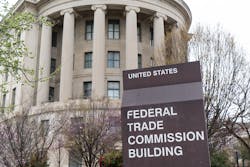Hospital mergers and acquisitions show no signs of slowing down on their own, but regulators appear to be hitting the brakes. For the first time in four years, the Federal Trade Commission has stepped in, blocking the proposed merger of nonprofit Jefferson Health and Albert Einstein Healthcare Network in Pennsylvania.
The FTC announced that it has authorized its staff to seek a temporary restraining order and a preliminary injunction to prevent the health systems from consummating their merger, and to maintain the status quo pending the administrative proceeding. The FTC, jointly with the Pennsylvania Attorney General, will file a complaint in federal district court. The issuance of the administrative complaint marks the beginning of a proceeding in which the allegations will be tried in a formal hearing before an administrative law judge.
Under hard-charging President and CEO Stephen Klasko, Jefferson has been on a growth spree over the past few years, merging with Abington Health, Kennedy Health, Aria Health and Fox Chase Cancer Center. Now Jefferson is in the midst of a deal with Einstein Healthcare Network that would create an 18-hospital system with nearly $6 billion in revenue.
The FTC complaint alleges that, as a result of the merger, the parties would control at least 60 percent of the inpatient general acute care hospital services market in and around North Philadelphia, and at least 45 percent of that market in and around Montgomery County. The FTC says the proposed merger would eliminate the robust competition between Jefferson and Einstein for inclusion in health insurance companies’ hospital networks to the detriment of patients.
“Patients in the Philadelphia region have benefitted enormously from the competition between the Jefferson and Einstein systems,” said Ian Conner, director of the FTC’s Bureau of Competition, in a statement “This merger would eliminate the competitive pressure that has driven quality improvements and lowered rates. Throughout our investigation, we have benefited from close cooperation with our partners in the Office of the Attorney General of Pennsylvania.”
The issue is complicated by the huge health disparity gaps that exist in Philadelphia and health system attempts to respond to them. For its part, Jefferson issued a press release noting that Jefferson, Einstein and local elected leaders share concerns throughout the greater Philadelphia region for reducing the health disparity gap. It included statements from U.S. Rep Dwight Evans (D.-Pa.) and State Sen. Christine M. Tartaglione (D-Philadelphia).
Said Sen. Tartaglione: “The merger of Jefferson Health and Einstein Healthcare Network would provide the residents of North Philadelphia and the surrounding region with improved access to high-quality, reliable medical care, so I am extremely disappointed that the FTC has chosen to challenge this definitive agreement. As a safety net hospital within a largely underserved community, Einstein has long been committed to securing the resources needed to deliver essential medical care to families in need. The merger with Jefferson would advance that noble mission and support community health for the foreseeable future.”
U.S. Rep. Evans called it “an outrageous action by the Federal Trade Commission and Pennsylvania Attorney General’s Office. The proposed merger would provide enhanced stability and access to high-quality care for the residents of North Philadelphia for the foreseeable future. I urge these agencies to drop this ill-considered action at once! I am fighting to secure the resources necessary for essential, safety net hospitals like Einstein to deliver care to those in need. In fact, I have been leading a truly bipartisan effort to strengthen hospital finances to prevent more closings like last year’s closure of Hahnemann University Hospital in Philadelphia. I have been working with leaders like the chairman of the powerful House Ways and Means Committee, on which I serve; the offices of U.S. Senators Bob Casey and Pat Toomey; and the Pennsylvania secretary of health, among others.”
The FTC vote to issue the administrative complaint and to authorize staff to seek a temporary restraining order and preliminary injunction was 4-0-1, with Chairman Joseph J. Simons recused. The administrative trial is scheduled to begin on Sept. 1, 2020. The federal court complaint and request for preliminary relief will be filed in the U.S. District Court for the Eastern District of Pennsylvania.


